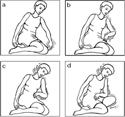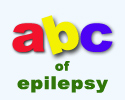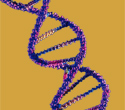What is Epilepsy?
Epilepsy is a medical condition that produces seizures affecting a variety of mental and physical functions. It’s also called a seizure disorder. When a person has two or more seizures, they are considered to have epilepsy.
A seizure happens when a brief, strong surge of electrical activity affects part or all of the brain. One in 10 adults will have a seizure sometime during their life.
Seizures can last from a few seconds to a few minutes. They can have many symptoms, from convulsions and loss of consciousness to some that are not always recognized as seizures by the person experiencing them or by health care professionals: blank staring, lip smacking, or jerking movements of arms and legs.
More about epilepsy:
 Types of Seizures
Types of Seizures
There are many different types of seizures. The kind of seizure a person has depends on which part and how much of the brain is affected by the electrical disturbance that produces seizures. More on types of seizures
 Prevalence and Incidence
Prevalence and Incidence
More than 3 million people in the U.S. have some form of epilepsy. About 200,000 new cases of seizure disorders and epilepsy are diagnosed each year. More on prevalence and incidence...
 Glossary of Terms
Glossary of Terms
What is an absence seizure? It is a lapse in consciousness with a blank stare that begins and ends within a few seconds. Learn more in our glossary of terms... | en espanol
 Genetics and Epilepsy
Genetics and Epilepsy
Some types of epilepsy can be inherited. Parents with a history of generalized absence seizures are more likely to have children with the same condition than those with other generalized seizures... More on genetics and epilepsy...
More on causes of epilepsy...
All information is reviewed by our Professional Advisory Board, the leading epilepsy experts in the United States.





